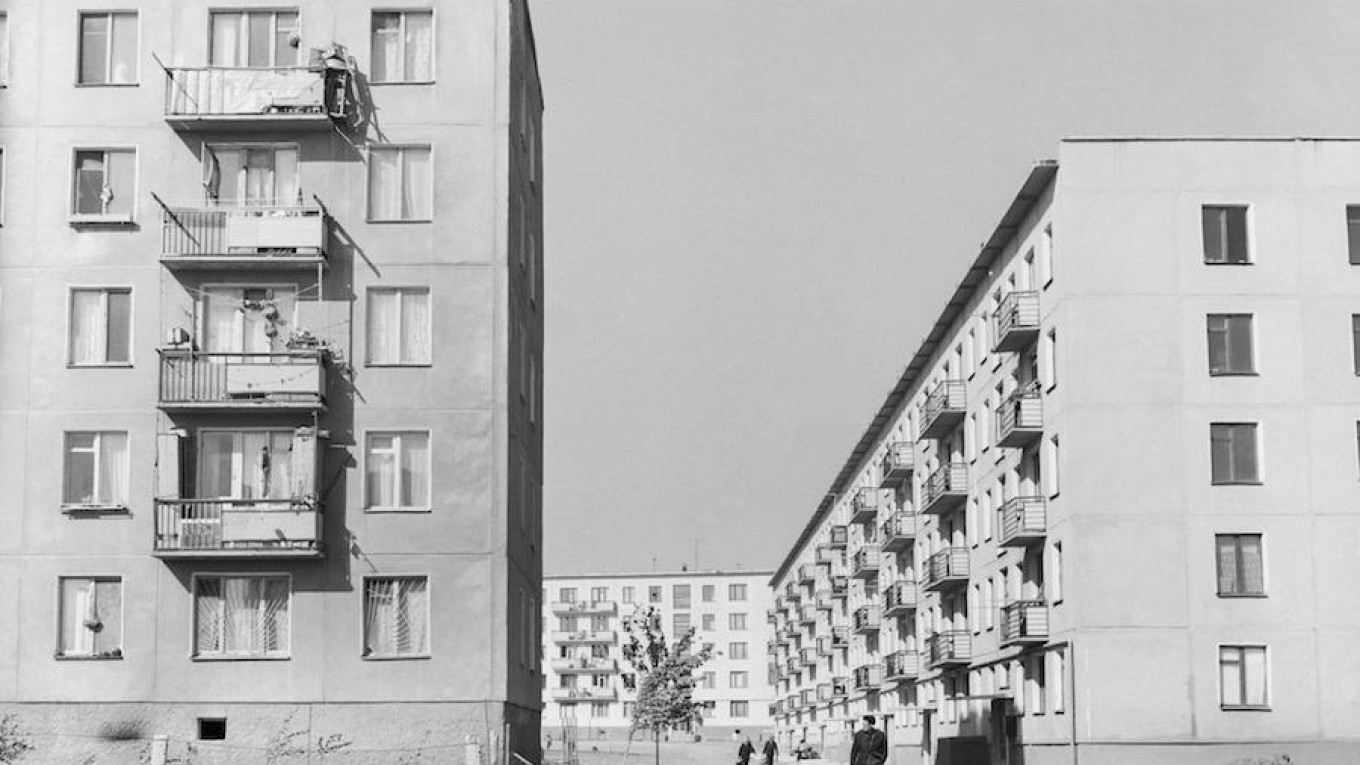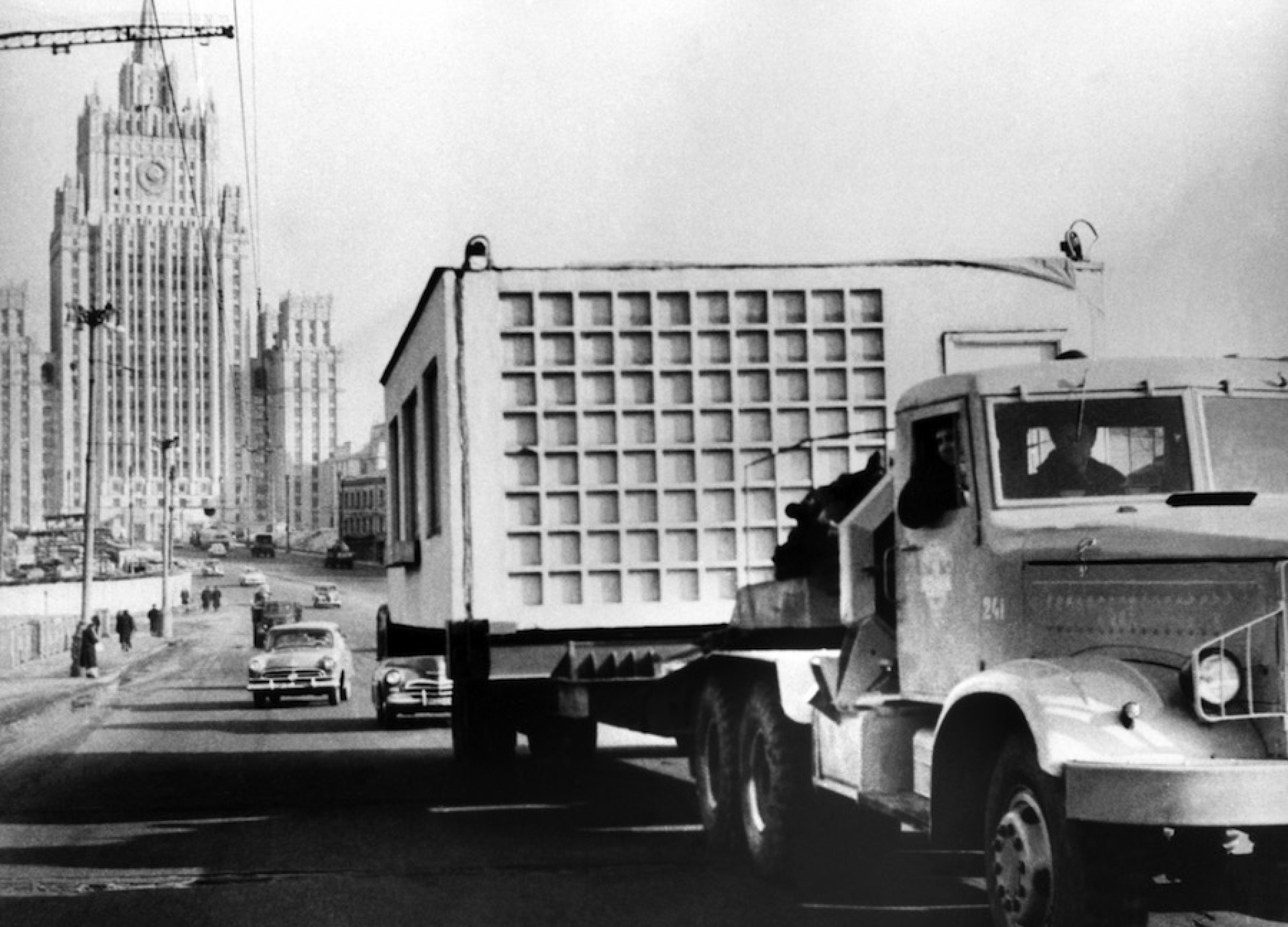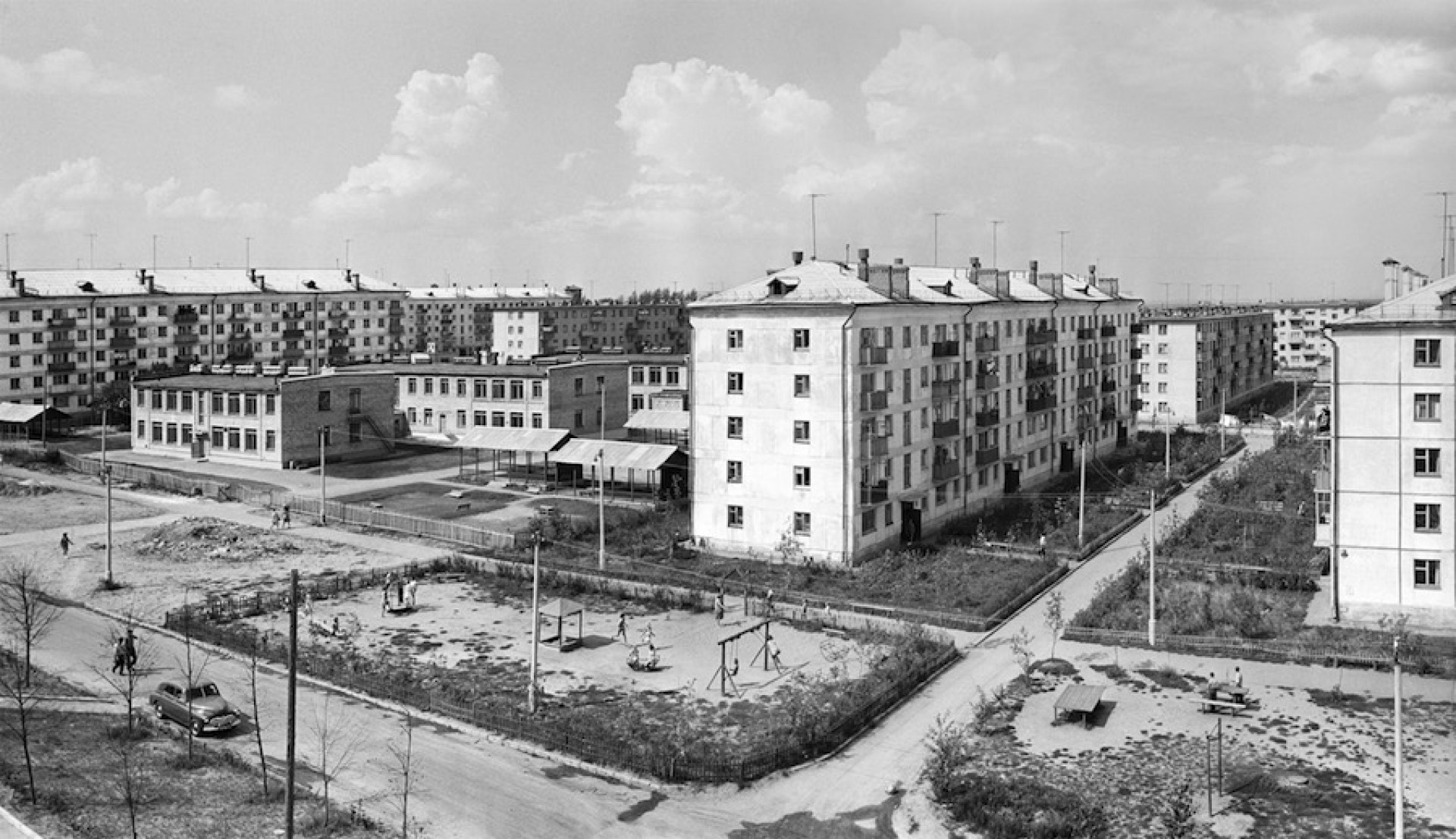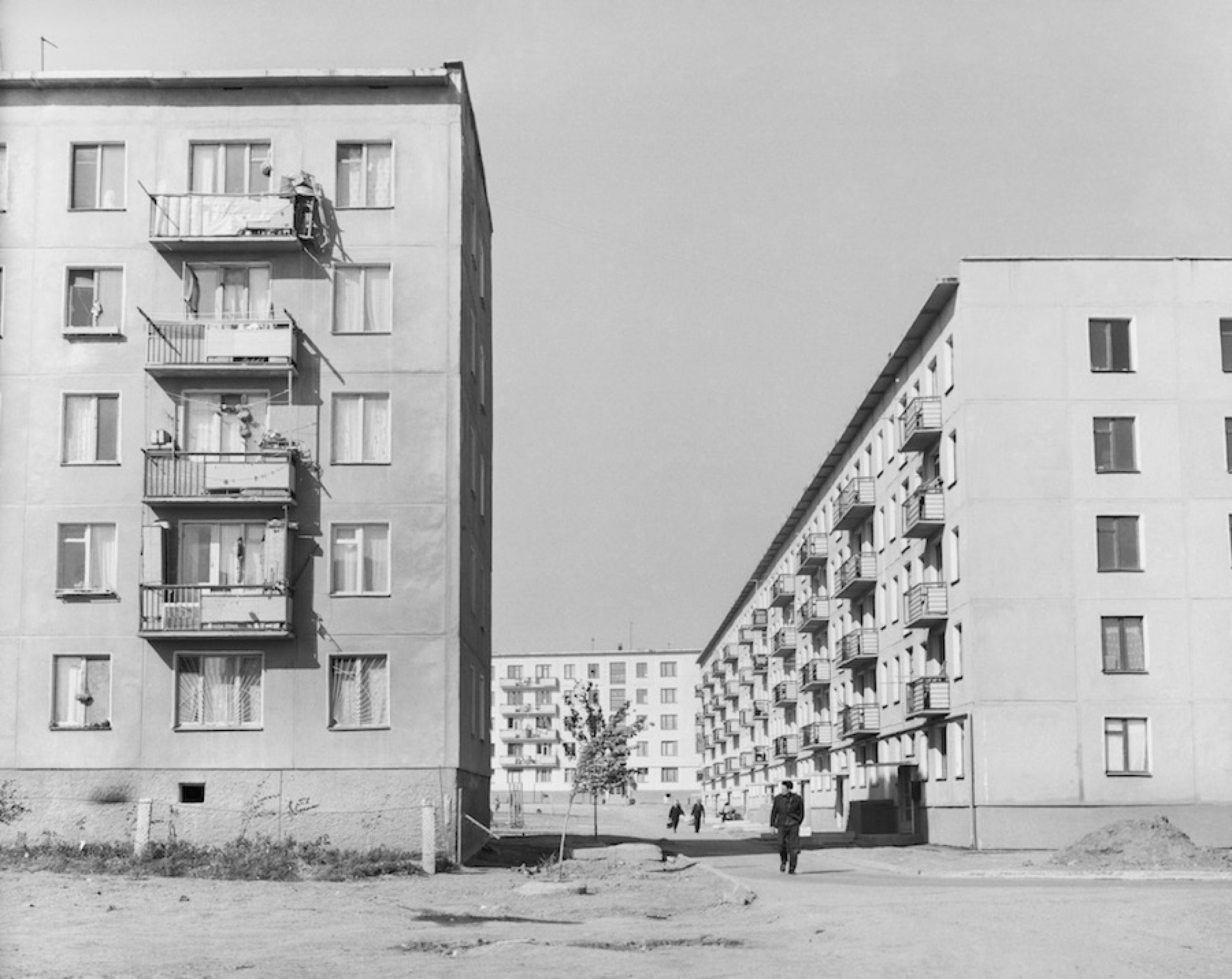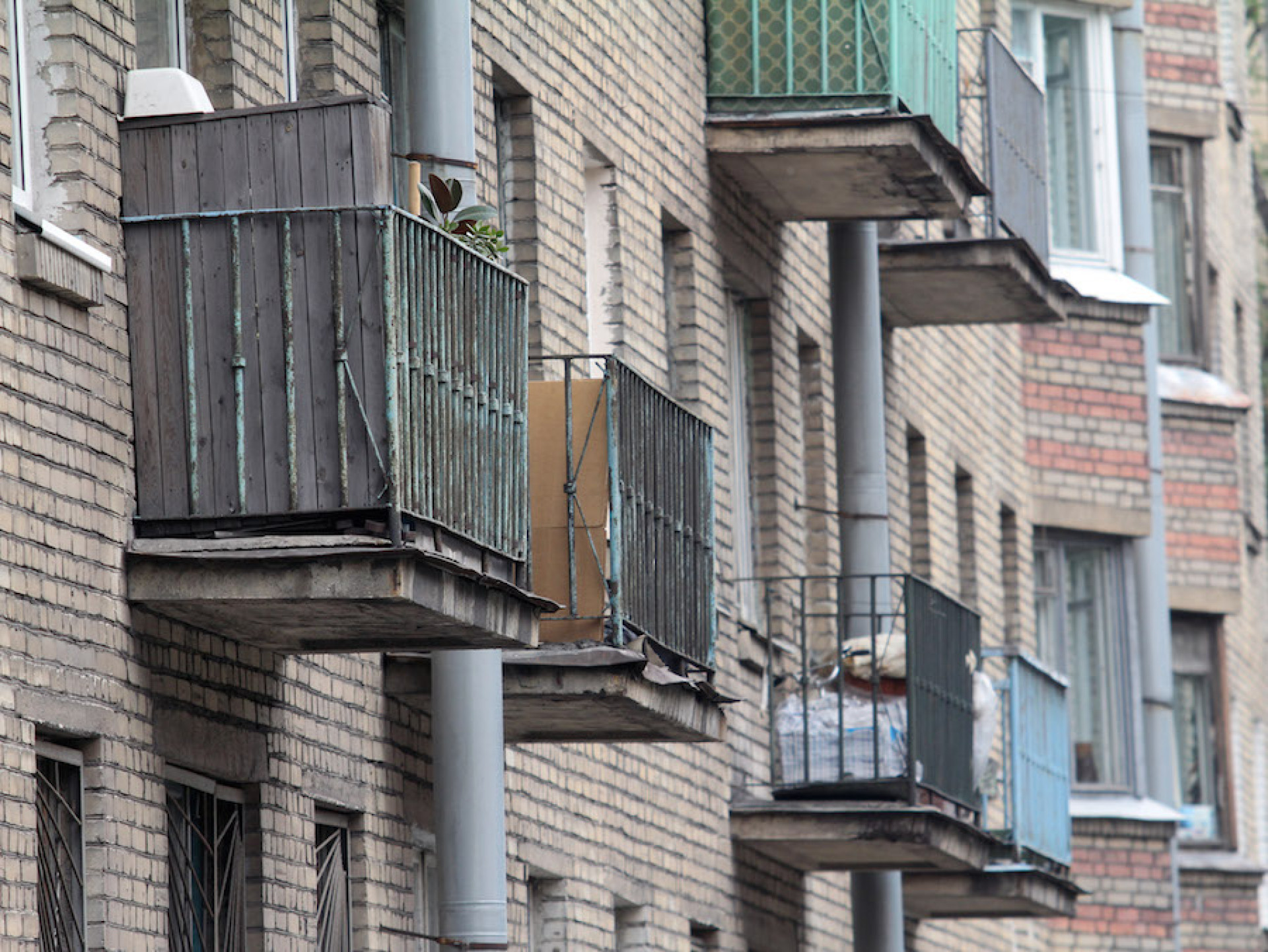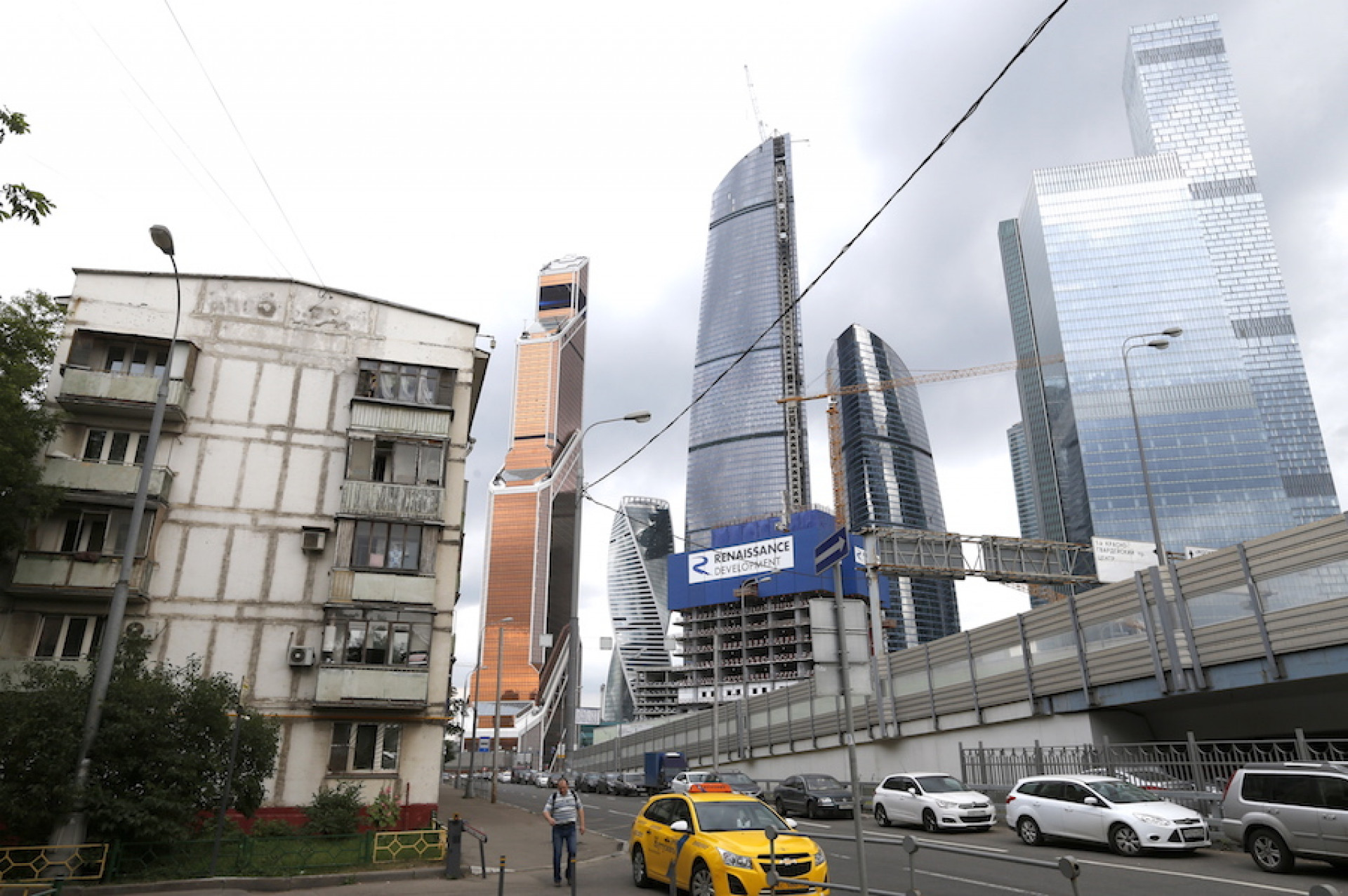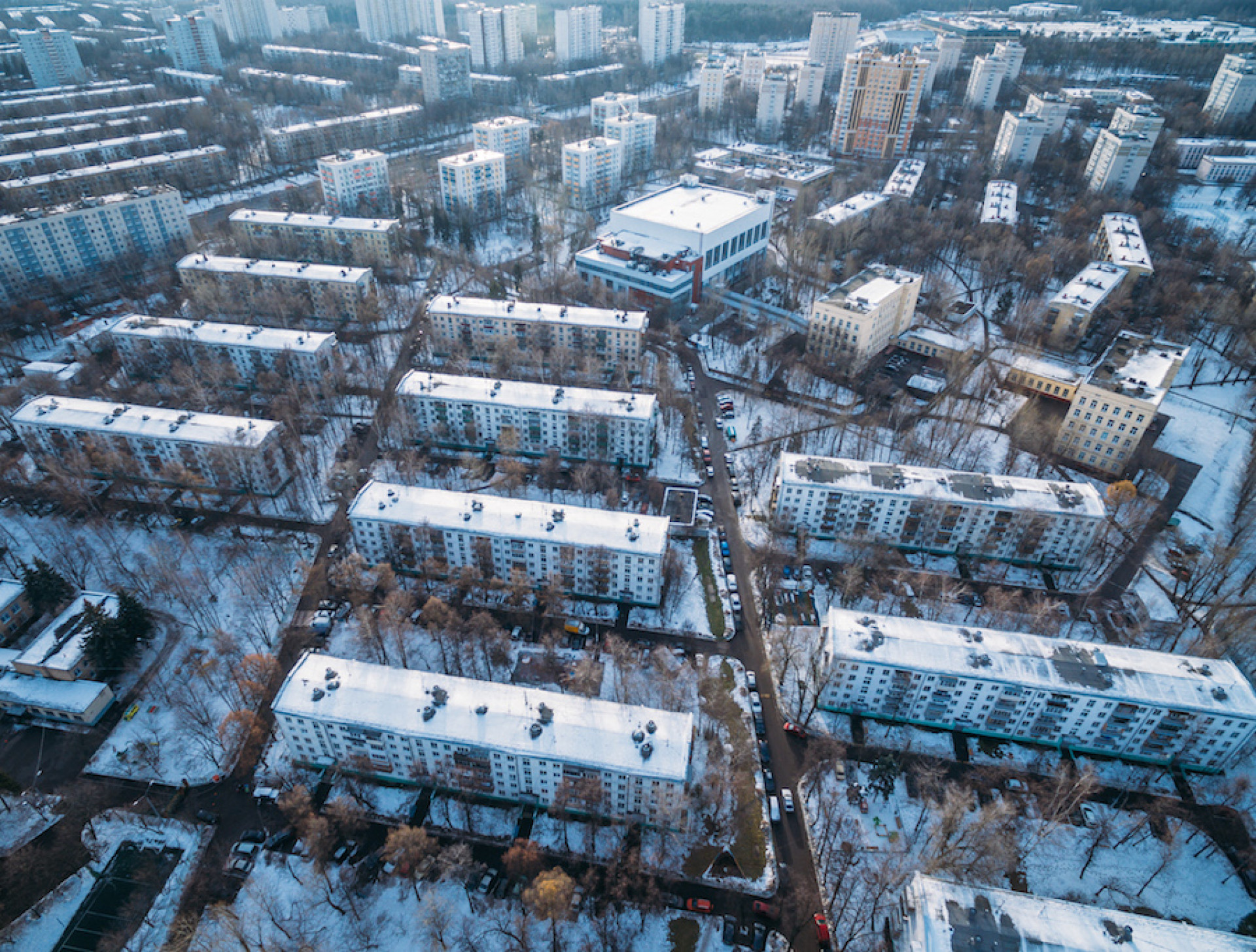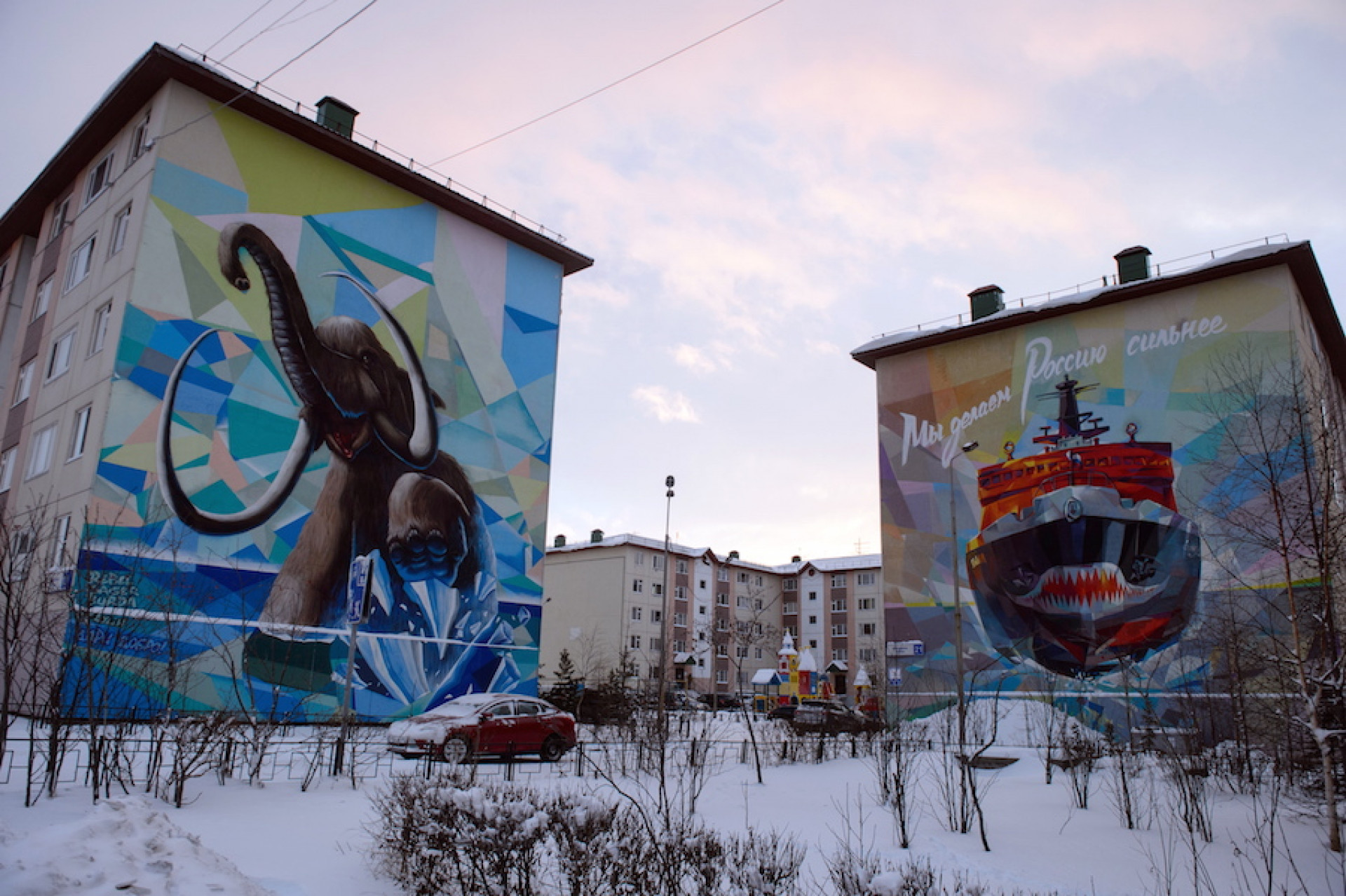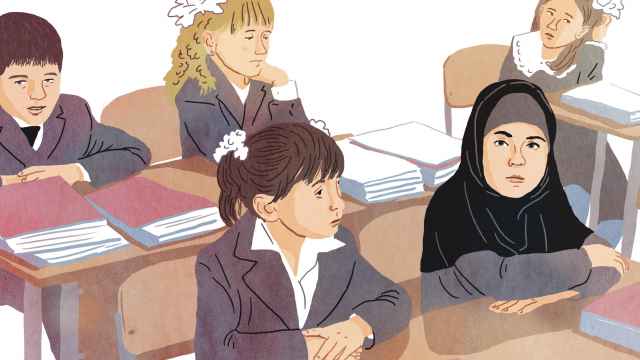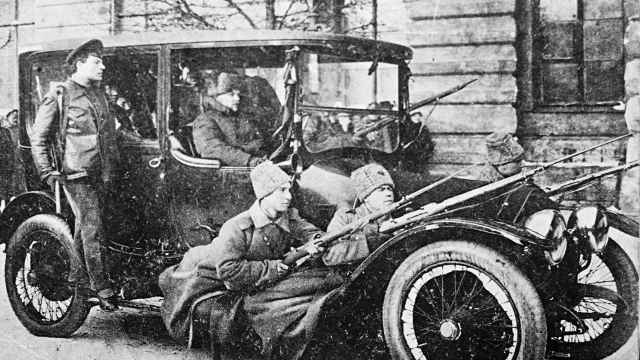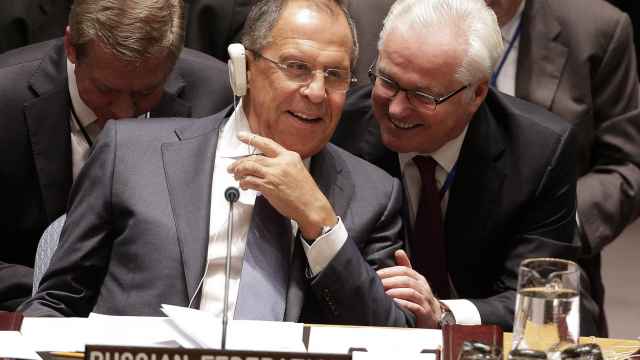Russian President Vladimir Putin has ordered the complete demolition of Moscow’s post-war Khrushchevkas: Soviet housing blocks which once offered hope to millions of families after World War II.
Moscow Mayor Sergei Sobyanin announced on Tuesday that 1.6 million Muscovites were still living in the buildings, many of which were not designed to last more than a few decades.
He described the buildings as “uncomfortable, largely dilapidated housing,” and promised that demolition work would be complete by the end of 2018.
Khrushchevkas were assembled en masse across the Soviet Union throughout the 1950s and 1960s in a bid to tackle the country’s post-war housing crisis. They were affectionately named in honor of Soviet leader Nikita Khrushchev, who pioneered the scheme.
Low-cost and quick to build, most of the apartments are comprised of one or two rooms alongside a private kitchen and bathroom. The buildings themselves were generally limited to five storeys in order to avoid the need to install an elevator. For millions of Russians, they were a luxurious upgrade from the communal flats which were lauded as the future during the early Communist period.
The Khrushchevkas were only designed to last a few decades. Soviet leaders believed that by the time “true Communism” arrived in Russia (hopefully at some point in the 1980s) replacements would already have been built.
Instead, the buildings became an integral part of Soviet culture and were romanticized in popular movies such as 1970’s “Irony of Fate.” Pre-fabricated apartment blocks continued to be built in Russia until the end of the Soviet era.
A Message from The Moscow Times:
Dear readers,
We are facing unprecedented challenges. Russia's Prosecutor General's Office has designated The Moscow Times as an "undesirable" organization, criminalizing our work and putting our staff at risk of prosecution. This follows our earlier unjust labeling as a "foreign agent."
These actions are direct attempts to silence independent journalism in Russia. The authorities claim our work "discredits the decisions of the Russian leadership." We see things differently: we strive to provide accurate, unbiased reporting on Russia.
We, the journalists of The Moscow Times, refuse to be silenced. But to continue our work, we need your help.
Your support, no matter how small, makes a world of difference. If you can, please support us monthly starting from just $2. It's quick to set up, and every contribution makes a significant impact.
By supporting The Moscow Times, you're defending open, independent journalism in the face of repression. Thank you for standing with us.
Remind me later.




